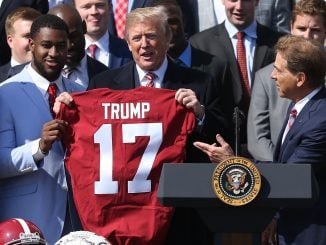During and after World War II, physics research and education in the United States benefitted from a significant influx of talented immigrants fleeing violence, war, and persecution in their home countries.
In 1948, an Austrian-born naturalized citizen named Hans Freistadt came to UNC Chapel Hill to study for a PhD in the field of General Relativity (Einstein’s theory of gravity) which was a hot topic at the time. As a student, Freistadt worked on a project with one of the most famous physicists ever to teach in our physics department, Professor Nathan Rosen. Rosen was a colleague of Einstein and co-author of the paper that introduced the famous Einstein-Podolsky-Rosen (EPR) Paradox, which explores a spooky and instantaneous connection between particles with “entangled” states, but I digress.
Rosen and colleagues nominated Freistadt for a prestigious fellowship from the Atomic Energy Commission and he was selected in May, 1949.
But there was one problem; he was an outspoken member of the Communist Party.
Two UNC Chapel Hill students learned of the fellowship and expressed their concerns to North Carolina Sen. Clyde R. Hoey. At his instigation, Congress opened an investigation by the Joint Committee on Atomic Energy. A nervous 23-year-old Freistadt agreed to testify before the committee on May 17. The committee wanted to know: Was he a communist? Yes. Did his sponsor Rosen know this when he nominated him for the AEC fellowship? Yes, but Rosen asked that he spend time on his studies instead. Did the communists want to overthrow the government by violence? No, they sought change by democratic means.
After the hearings, the AEC instituted both a loyalty oath and an “affidavit of non-communism” as requirements for the fellowship. Freistadt had no qualms with an oath of loyalty to the Constitution, he had served in the Army in World War II and he had already signed a similar oath for his employment at UNC Chapel Hill. But he would not renounce his membership in the Communist Party, so he lost his fellowship.
The 1949 Trustees chaired by Victor Bryant met on May 24th and, while they denounced communism, they took no action to remove Freistadt, rather they left the matter of dealing with communist teachers to the faculty and administrators of the university. Freistadt’s teaching appointment expired that June and was not renewed.
Years ago, I spoke to an alumnus who was Freistadt’s former Phillips Hall office mate. He told me the faculty quietly took up a collection to help fund the last year of Freistadt’s education.
He graduated with PhD in Physics in 1950. He never did overthrow the government.
The idea that the compelled speech of a loyalty oath would be required for employment, or that the principles of academic freedom would permit a fellowship to explicitly exclude members of a political party are alarming to today’s faculty.
The protection of academic and intellectual freedom requires vigilance. There is a robust discussion among the faculty at UNC Chapel Hill and other schools about the appropriate criteria for hiring and promotion. Should a commitment to social action or demonstrated success at social reform be a component of the interview and hiring process alongside demonstrated intellectual and research contributions? Can such a requirement ever be applied or evaluated in a politically neutral way? How will criteria unrelated to a scholar’s area of research be weighted compared to actual and prospective scholarly and intellectual achievement? Who will make these decisions?
Our history can be a helpful guide in these conversations. In the Joint Committee on Atomic Energy hearings of May 1949, Dr. Henry DeWolf Smyth of Princeton University was also questioned. He was clearly concerned about losing some of the best talent that was coming to our shores in the Cold War period and expressed a desire that “the idea will not get abroad that the only people who can get AEC fellowships are complete conformists.”
Dr. Smyth’s point is one well worth remembering.
Dr. Chris Clemens is Provost of the University of North Carolina at Chapel Hill and and Jaraslov Folda Distinguished Professor of Physics and Astronomy
Any opinions expressed in this article are not to be taken as an official position of the University of North Carolina at Chapel Hill



